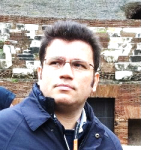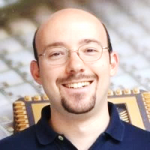Staff
Carlo Fiorini
Carlo Fiorini received the Laurea degree and the Ph.D. degree from Politecnico di Milano in Electronics Engineering in 1994 and 1998, respectively. In 1999, he joined the Department of Nuclear Engineering of Politecnico di Milano as Assistant Professor, while in 2002 he joined the Department of Electronics and Information Technologies as Associate Professor. In 2010 he has become Full Professor in the same Department. He has carried out part of the research activity at the Max Planck Institut (München, Germany), the University of Siegen (Germany) and the ESRF of Grenoble (France). His primary research interests concern the development of radiation detectors and related applications, and the readout electronics for the detector signals. He has received the “young researcher award” at the Conference “Frontier Detectors for Frontier Physics” in 1997, the “Philip Morris Prize” in 1997 and the “Prof. Luigi Tartufari” Prize from the Accademia Nazionale dei Lincei in 2000. He has participated to several national projects supported by MIUR, INFN, CNR, ASI and international projects funded by European Community and European Space Agency, also as coordinator. He has been committed in research activities by companies like Siemens Medical Solutions (USA), Ion Beam Applications (IBA, Belgium), Osteosys (Korea), PulseTor (USA), Canberra (USA). He is author and co-author of more than 300 papers in international reviews and conference proceedings, and co-author of 6 patents. He was co-founder and past president of XGlab, a spin-off company of Politecnico di Milano.
Marco Carminati
Marco Carminati, was born in 1981 in Milan (Italy). He received B. Sc. and M. Sc. in Electronic Engineering, both magna cum laude from Politecnico di Milano, in 2003 and 2005 respectively. In 2006 he joined DEI developing a compact aircraft attitude estimation unit based on MEMS inertial sensors and Kalman filtering. In January 2007 he won (first position in the ranking) a national grant for his doctoral studies, which he completed in 2009, focusing on low-noise analog design and (bio)-electronic instrumentation. In 2007 he was awarded a Progetto Roberto Rocca Fellowship and spent the 2008 spring semester at MIT (USA) as a visiting student in prof. Joel Voldman’s group, working on bioMEMS and microfluidics. From 2010 to 2015 he was post-doc researcher at DEIB contributing to the invention of original micro-sensors based on high-resolution impedance detection for silicon photonics and environmental monitoring. Since 2014 he is teacher of the “Biochip” course and serves as secretary of the IEEE I&M TC-34. Since 2016 he is fixed-term Assistant Professor (RTDa) in the group led by prof. Carlo Fiorini, focusing on low-noise nuclear electronics, with applications spanning from medical imaging to neutrino physics. He has authored more than 120 peer-reviewed international publications, holds 1 patent and was awarded 2 best paper awards at IEEE conferences. He has lectured about sensors in different PhD Schools including PolyNano (Copenhagen), Gruppo Elettronica (Brescia), Advanced School on Impedance Spectroscopy (Chemnitz). He is Guest Editor of a 2018 special issue of TBioCAS entitled “Advances and open challenges for integrated circuits detecting bio molecules”.

